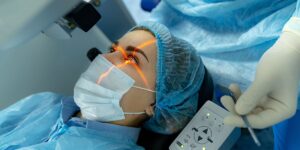In recent years, there has been a growing awareness of the importance of sleep health and its impact on overall wellbeing. Sleep plays a crucial role in our daily lives, affecting our physical and mental health, cognitive function, and emotional well-being. However, sleep disorders have become increasingly prevalent, and their effects on individuals and society are significant.
Understanding the Importance of Sleep Health
As we strive to lead healthy and fulfilling lives, it is essential to prioritize sleep health. A good night’s sleep allows our bodies to rejuvenate and repair themselves, providing us with the energy and vitality needed to face the challenges of each day. Additionally, sleep is essential for the consolidation of memories and the restoration of cognitive function, ensuring optimal brain performance.
Studies have shown that inadequate sleep can lead to a range of health problems, including obesity, diabetes, cardiovascular disease, and weakened immune systems. Furthermore, insufficient sleep can impair concentration, memory, and decision-making abilities, affecting our productivity and overall quality of life.
The Role of Sleep in Overall Wellbeing
Sleep is a fundamental pillar of overall wellbeing, along with nutrition, exercise, and mental health. It impacts our physical, mental, and emotional health in myriad ways. Not only does sleep deprivation lead to a decline in physical health, but it also increases the risk of mental health disorders such as anxiety and depression.
By prioritizing sleep health, individuals can improve their mood, increase energy levels, enhance memory and cognitive function, and reduce the risk of chronic diseases. Recognizing the vital role sleep plays in our overall wellbeing is the first step toward achieving optimal health.

Common Sleep Disorders and Their Impact
There are various sleep disorders that can significantly impact an individual’s quality of life. Insomnia, characterized by difficulty falling asleep or staying asleep, affects millions of people worldwide. Sleep apnea, another prevalent sleep disorder, is marked by brief interruptions in breathing during sleep, leading to daytime sleepiness and fatigue.
Narcolepsy, restless leg syndrome, and parasomnias such as sleepwalking and night terrors are other examples of sleep disorders that can disrupt sleep patterns and contribute to sleep deprivation. Understanding these disorders and their impact is crucial in addressing sleep health challenges effectively.
Moreover, it is important to note that sleep disorders can affect individuals of all ages. For instance, children may experience night terrors or sleepwalking, while older adults may be more prone to sleep apnea or restless leg syndrome. Recognizing the specific sleep disorders that can occur at different stages of life is essential in providing appropriate treatment and support.
Furthermore, the impact of sleep disorders extends beyond the individual. It can affect relationships, work performance, and overall quality of life for both the person experiencing the sleep disorder and their loved ones. The disruption caused by sleep disorders can lead to increased stress, irritability, and decreased productivity in various aspects of life.
Therefore, it is crucial to raise awareness about sleep disorders and the importance of seeking professional help when needed. With proper diagnosis and treatment, individuals can regain control over their sleep health and improve their overall wellbeing.
The Process of a Sleep Study
When dealing with complex sleep disorders, a comprehensive sleep study, also known as polysomnography, is often conducted. This specialized diagnostic tool allows healthcare professionals to monitor and evaluate various parameters during sleep, providing valuable insights into the individual’s sleep patterns and identifying potential causes of sleep disturbances. Learn more click here
What to Expect During a Sleep Study
A sleep study typically takes place in a sleep laboratory where the individual spends a night under observation. During the study, electrodes are placed on the individual’s scalp, face, chest, and legs to monitor brain activity, eye movements, muscle tone, heart rate, and breathing patterns. The sleep study technician carefully monitors the individual’s sleep stages and records any disturbances or abnormalities.
As the individual settles into bed, surrounded by the softly humming machines and the gentle glow of monitoring equipment, they may feel a mix of curiosity and apprehension. The unfamiliar environment, with its array of wires and sensors, can be a bit overwhelming at first. However, the sleep study team is well-trained in creating a comfortable and calming atmosphere, ensuring that the individual feels at ease throughout the process.
Once the individual is settled, the sleep study technician will explain the importance of the study and answer any questions they may have. It’s essential for the individual to understand that their participation in the study is vital in uncovering the root causes of their sleep disturbances and ultimately improving their sleep health.

Interpreting Sleep Study Results
Once the sleep study is complete, the collected data is analyzed by sleep specialists and physicians. They carefully examine the sleep architecture, breathing patterns, and other recorded parameters to diagnose any sleep disorders or abnormalities. The findings help healthcare professionals tailor personalized treatment plans to improve sleep health.
As the sleep specialists meticulously review the sleep study results, they look for patterns and anomalies that may hold the key to understanding the individual’s sleep challenges. They analyze the sleep architecture, which includes the different stages of sleep, such as REM (rapid eye movement) and non-REM sleep. They also pay close attention to breathing patterns, looking for signs of sleep apnea or other respiratory issues that may be disrupting the individual’s sleep.
It is important to consult with a healthcare professional who can interpret sleep study results accurately and guide individuals toward appropriate interventions or lifestyle modifications to address their specific sleep health needs. With the help of these experts, individuals can gain a deeper understanding of their sleep patterns and take steps towards achieving restful nights and revitalized days.
Sleep Health in New South Wales: A Closer Look
Within New South Wales, sleep health has emerged as a significant concern. Research indicates that many individuals in the region experience poor sleep quality, insufficient sleep duration, and struggles with falling or staying asleep. These sleep patterns not only impair daily functioning but also contribute to a range of health problems.
Sleep Patterns and Habits in New South Wales
Studies have revealed that a significant number of individuals in New South Wales do not obtain the recommended seven to eight hours of sleep each night. This sleep deprivation can be attributed to various factors, including work demands, social and lifestyle factors, and the use of electronic devices before bedtime.
Interestingly, recent studies have also shown a correlation between sleep patterns and socioeconomic status in New South Wales. Individuals from lower-income households tend to experience more sleep disturbances compared to those from higher-income households. This disparity highlights the need for targeted interventions to address sleep health inequalities in the region Find more at https://www.unsw.edu.au/.
Furthermore, irregular work schedules, such as shift work, pose additional challenges to maintaining healthy sleep habits. The disruption of the natural sleep-wake cycle can have long-term consequences on sleep quality and overall health. Shift workers often struggle with irregular sleep patterns, leading to increased fatigue and a higher risk of accidents and errors at work.
Addressing Sleep Health Challenges in New South Wales
To address the sleep health challenges faced by individuals in New South Wales, it is crucial to raise awareness about the importance of sleep and provide education on establishing healthy sleep habits. Employers can also play a role by implementing policies that promote employee well-being and work-life balance, ensuring better sleep opportunities for workers.
Moreover, it is essential to recognize the role of mental health in sleep health. New South Wales has seen a rise in mental health issues, such as anxiety and depression, which can significantly impact sleep quality. Collaborative efforts between sleep specialists and mental health professionals can help develop integrated treatment approaches that address both mental health and sleep disorders.
Furthermore, healthcare professionals can provide guidance on sleep hygiene practices, such as establishing a consistent sleep schedule, creating a conducive sleep environment, and fostering relaxation techniques before bed. Recognizing the unique challenges faced by individuals in New South Wales is essential in developing targeted interventions to improve sleep health in the region.
In conclusion, sleep health in New South Wales is a multifaceted issue with various factors contributing to poor sleep patterns and habits. By addressing these challenges through education, policy changes, and integrated healthcare approaches, we can strive towards improving sleep health and overall well-being in the region.
Improving Sleep Health: Tips and Strategies
Fortunately, there are various strategies individuals can employ to improve their sleep health and overcome sleep disorders. By incorporating lifestyle changes and considering medical interventions when necessary, individuals can achieve better sleep quality and overall well-being.
Lifestyle Changes for Better Sleep
Establishing a consistent sleep schedule, maintaining a relaxing bedtime routine, and creating a sleep-friendly environment are key lifestyle changes that can promote better sleep. It is also essential to limit the consumption of stimulating substances like caffeine and alcohol, especially close to bedtime.
Engaging in regular physical activity, practicing stress-reducing techniques such as meditation or deep breathing exercises, and avoiding electronic devices before bedtime can also significantly improve sleep quality.
Medical Interventions for Sleep Disorders
In cases where lifestyle modifications are not sufficient, medical interventions may be necessary to address sleep disorders effectively. Continuous positive airway pressure (CPAP) machines are commonly used to treat sleep apnea, while medications and behavioral therapy can help manage insomnia.
Consulting with a healthcare professional who specializes in sleep medicine can provide individuals with the appropriate interventions and treatments based on their specific sleep disorder and overall health.
The Future of Sleep Health in Sydney
As technology continues to advance, there is great potential for further research and developments in the field of sleep health. With a growing emphasis on holistic well-being, integrating technology into sleep assessment and management can lead to innovative approaches for improving sleep health in Sydney and beyond.
Ongoing Research and Developments
Ongoing research aims to deepen our understanding of sleep and its complexities, uncovering new insights into sleep disorders and their underlying causes. Scientists are exploring innovative methods for sleep assessment, including wearable devices and mobile applications, to provide individuals with self-monitoring tools and real-time feedback on their sleep quality and habits.
The integration of big data analysis and artificial intelligence also holds promise in developing personalized interventions and treatment plans for individuals with sleep disorders, optimizing sleep health outcomes.
The Role of Technology in Sleep Health Improvement
Technology has the potential to revolutionize the way we approach sleep health. From smart mattresses that adjust to individual sleep preferences to smart lighting systems that facilitate the regulation of circadian rhythms, technological advancements have the power to enhance sleep quality and promote optimal sleep health.
Furthermore, telemedicine and virtual sleep clinics can increase accessibility to sleep specialists, allowing individuals to seek expert advice and obtain personalized sleep assessments from the comfort of their own homes.
In conclusion, sleep health is a critical aspect of overall wellbeing, and understanding its importance is key to leading a healthy and rewarding life. By recognizing common sleep disorders, undergoing sleep studies where necessary, and implementing lifestyle changes or seeking medical interventions, individuals can improve their sleep quality and overall health. As we look toward the future, ongoing research and technological advancements provide hope for further advancements in sleep health, ensuring that individuals in Sydney and New South Wales have access to the tools and knowledge needed to obtain optimal sleep health.










